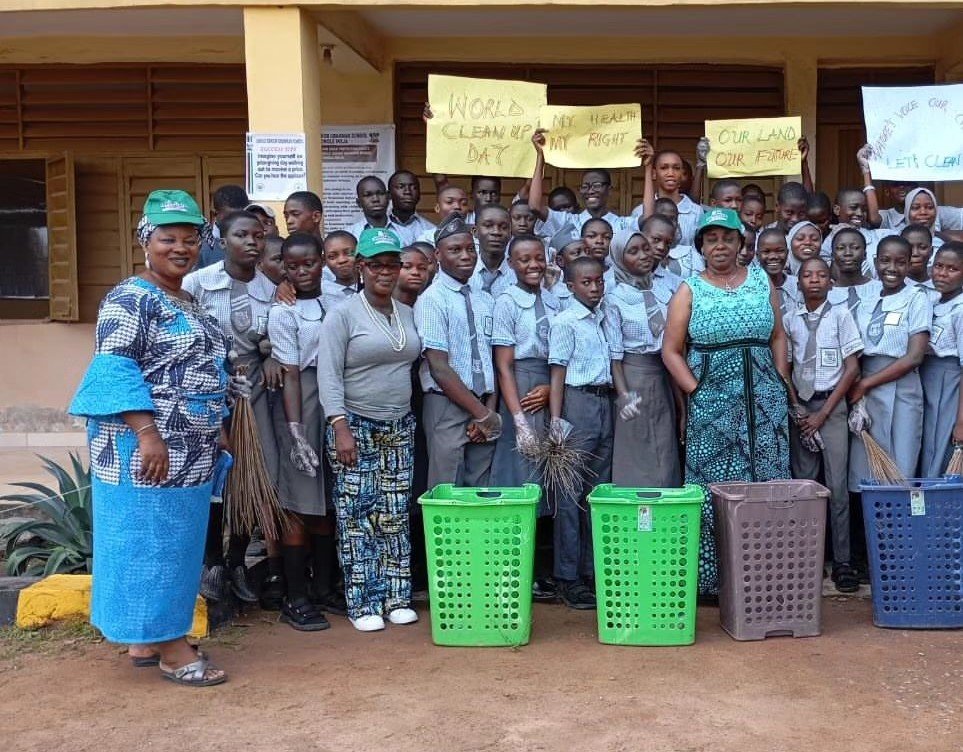The environment in Nigeria is under severe strain, affecting communities throughout the country. In the Niger Delta, an area abundant in oil, the consequences are particularly evident, as it bears the scars of oil spills and unregulated industrial waste. Oil spills, air and water pollution, and unchecked dumping have contaminated lands and poisoned water sources. In rural regions, forests are disappearing, and soil fertility is declining as deforestation clears land for unsustainable development. However, Temitope Okunnu, a Nigeria environment advocate, is working to promote environmental sustainability and reduce the country’s carbon footprints.
Statistics reveal that Nigeria ranks 133 out of 180 countries on the Environmental Performance Index, highlighting the strain on resources and difficulties adapting to pollution and climate instability. In farming regions, erratic weather patterns linked to climate change complicate food production and threaten livelihoods. This crisis affects not just the environment but also the health and well-being of millions.
To address these challenges, FABE International Foundation implements practical, community-focused solutions. Established to empower Nigerians, the organisation illustrates how effective waste management can transform lives and communities. Its programmes encourage households to sort, recycle, and compost, helping to reduce waste and lessen reliance on strained resources. For example, in Lagos alone, these initiatives have prevented over 12,000 plastic bottles and 60 tyres from clogging landfills or polluting waterways. The foundation’s efforts not only clean up the environment but also equip communities with essential tools for long-term sustainability.
Temitope Okunnu, the founder of FABE, brings over sixteen years of experience in environmental advocacy and practical solutions to Nigeria’s climate challenges. She emphasises simple, impactful actions, such as composting food leftovers to enrich the soil, which supports local food security while reducing waste. She has impacted the lives of thousands of Nigerians in many rural communities. For Okunnu, the mission of FABE holds great significance as it aims to create lasting change through actions that improve lives and protect the environment.

The foundation employs a multifaceted approach to waste management and the circular economy. Okunnu and her team have developed community-driven initiatives fostering a solid commitment to sustainability. By educating communities on recycling, upcycling, and composting, FABE equips individuals with the skills to lower carbon footprints and conserve natural resources while turning waste management into an income stream. In overpopulated coastal areas, these initiatives prevent plastic waste from reaching the ocean and revive traditional livelihoods threatened by environmental damage.
Impact and reach
The foundation’s successes highlight the significant impact of community involvement and educational initiatives. Since its inception in 2008, it has trained 7,805 women and 11,300 students, fostering an eco-conscious culture across Nigeria. It has also impacted the lives of more than 20,000 young people and women across Nigeria, teaching them sustainable practices they can implement daily and share with others.
Over 1,020 tons of plastic waste have been diverted from local waterways in 176 schools and communities, protecting the environment and traditional fishing grounds. The mission to cultivate an eco-conscious generation has also created jobs, with 105 individuals from disadvantaged backgrounds now employed through the organisation.
Okunnu’s accomplishments have gained recognition across various platforms, including with the United Nations Economic and Social Council. Through her dedication, Temitope Okunnu demonstrates that environmental sustainability can profoundly impact communities, making a healthy, sustainable future attainable for all.



